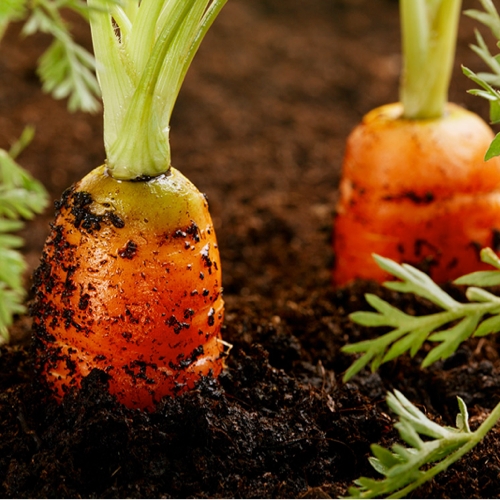Vegetable Garden Basics
Here are a few hints & tips to get you started
A vegetable garden can be the perfect addition to your landscape. Growing your own vegetables organically ensures healthful produce and saves you the high prices of organically grown produce at the grocery store.

Things to consider
Location
Location is key to the first step of growing your vegetables. Vegetables need at least 6 – 8 hours of sunlight to achieve the best growth. Leafy vegetables like spinach and lettuce will grow with less sunlight. Choose a location as far away as possible from trees and shrubs. The roots of nearby trees and shrubs will rob your vegetables of needed nutrients and water, even more so if you are using a hgh quality organic veg compost. Soil with good drainage is needed and maybe have your soil tested before you start growing, to determine if your soil is lacking any nutrients. If it is, then you can buy nutrient rich composts from us from leading brands such as John Innes compost. As well as sunlight plants need moisture, so being near a supply of water will help ensure the vegetables get the water they need as well as the valuable nutrients.
Space smartly
To get the maximum yields from each bed, pay attention to how you arrange your plants. Avoid planting in square patterns or rows. Instead, staggering the plants in triangles will help you maximize the area, potentially giving you 10% more plants in each bed. This method also improves the chances of having a good crop, as the plants won't be as competitive with each other for resources.
Just be careful not to space your plants too tightly. Some plants won’t reach their full size, or yield, when crowded. For instance, when one researcher increased the spacing between romaine lettuces from 8 to 10 inches, the harvest weight per plant doubled. (Remember that weight yield per square foot is more important than the number of plants per square foot.) Overly tight spacing can also stress plants, making them more susceptible to diseases and insect attack.
What To Grow
Don't go overboard with your seed ordering after viewing all the colorful garden catalogs with their beautiful pictures of veggies or you may be the gardener in your neighborhood trying to give away Zucchini. Grow what your family likes to eat. As a first time gardener, stay away from "exotic" veggies like kohlrabi or hard to grow veggies like cauliflower or head lettuce.
Grow hybrid vegetables. Hybrid vegetables are usually stronger and healthier than other vegetables. They often have higher yields. Many have a built-in disease resistance and they are more likely to recover from bad weather. Hybrids may cost a little bit more than other types of vegetables, but the cost is worth it. If you save seeds, remember that hybrids do not reproduce true to type meaning the new plant will be inferior to the mother plant.
Whatever your choice of plant, The Compost Shop can provide the best multi purpose compost for your vegetable garden to give your veg the best chance at success.